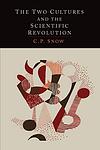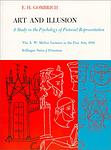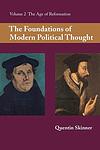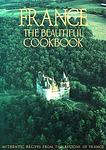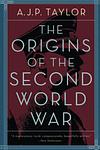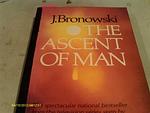The Greatest British "Nonfiction" Books Since 1950
Click to learn how this list is calculated.
This list represents a comprehensive and trusted collection of the greatest books. Developed through a specialized algorithm, it brings together 284 'best of' book lists to form a definitive guide to the world's most acclaimed books. For those interested in how these books are chosen, additional details can be found on the rankings page.
Genres
Countries
Date Range
Reading Statistics
Click the button below to see how many of these books you've read!
Download
If you're interested in downloading this list as a CSV file for use in a spreadsheet application, you can easily do so by clicking the button below. Please note that to ensure a manageable file size and faster download, the CSV will include details for only the first 500 books.
Download-
51. Good Company by Frances Partridge
"Good Company" is a reflective memoir that offers an intimate glimpse into the life of a central figure within the Bloomsbury Group, an influential circle of intellectuals and artists in early 20th-century England. The book weaves personal anecdotes, diary entries, and letters to paint a vivid portrait of the author's friendships, loves, and the cultural milieu in which she lived. It provides an honest and often poignant exploration of the author's relationships with key literary and artistic figures of the time, their shared experiences during the tumultuous years of the World Wars, and the enduring impact of these relationships on her life and work. The memoir stands as a testament to the power of intellectual companionship and the profound influence of community on individual creativity.
-
52. Bad Blood by Lorna Sage
"Bad Blood" is a memoir about a woman's escape from a repressive childhood in post-WWII Britain. The author recounts her experiences growing up in a dysfunctional family with a philandering vicar for a grandfather and a depressed and distant mother. Despite the bleak surroundings, she manages to find solace in literature and education, ultimately earning a scholarship to university. The book is a testament to the transformative power of education and the author's fierce determination to escape her past.
-
53. The Struggle For Mastery In Europe by A. J. P. Taylor
The book provides a comprehensive analysis of European international politics from the aftermath of the Napoleonic Wars to the outbreak of World War I. It examines the complex system of alliances, crises, and diplomatic maneuvers that characterized the continent during the 19th century, focusing on the quest for dominance among the great powers. The narrative delves into the balance of power principle, the role of nationalism, and the impact of economic and military factors on the relationships between countries such as Britain, France, Germany, Austria-Hungary, Russia, and Italy. Through a detailed account of treaties, wars, and diplomatic strategies, the work explores how the struggle for supremacy shaped the modern European state system and sowed the seeds for future conflicts.
-
54. Four Essays On Liberty by Isaiah Berlin
This philosophical work is a collection of essays that explore the concept of liberty and its place in modern society. The author delves into the distinction between two forms of liberty—negative and positive—and examines the tensions and conflicts that arise between them. The essays also discuss the limits of freedom, the role of individual choice, and the impact of social and political pressures on personal liberties. Through historical examples and philosophical argumentation, the author presents a nuanced view of freedom, suggesting that a balance must be struck between individual liberty and communal values to maintain a stable and just society.
-
55. The Two Cultures And The Scientific Revolution by C. P. Snow
The book in question presents an influential argument about the widening gulf between two fundamental areas of modern society: the sciences and the humanities. The author, a scientist and novelist, asserts that the lack of communication and understanding between these "two cultures" hinders solutions to global problems and stifles intellectual progress. He advocates for a more integrated approach to education and intellectual life, where mutual understanding and collaboration between scientific and literary intellectuals can lead to a more informed and cohesive society capable of addressing its most complex challenges.
-
56. Purity And Danger by Mary Douglas
This seminal work in anthropology and sociology examines the concepts of cleanliness and pollution, and how different societies and cultures categorize and respond to what they consider pure or impure. The author argues that the ideas of purity and danger are not absolute but are constructed by social contexts, serving to uphold social structures and boundaries. Through a cross-cultural analysis, the book explores how rituals, taboos, and the notion of dirt are used to create order and meaning, revealing that what is deemed dirty or polluting often symbolizes disorder and challenges to the social system. The text is a thought-provoking exploration of the symbolic systems that humans create to maintain their cultural norms and social organization.
-
57. The Origins Of Totalitarian Democracy by J. L. Talmon
The book explores the historical development of the concept of totalitarian democracy, a political system that combines an official ideology with an authoritarian regime, claiming to represent the will of the people. It delves into the paradoxical nature of this form of government, which seeks to achieve a utopian ideal of democracy through undemocratic means. The author traces the roots of this phenomenon back to the Enlightenment and the French Revolution, examining the ideological underpinnings and the evolution of political thought that led to the emergence of totalitarian regimes in the 20th century. The work is a critical analysis of how revolutionary movements can devolve into oppressive systems that justify their actions in the name of democracy and the public good.
-
58. Religion And The Decline Of Magic by Keith Thomas
This scholarly work provides a comprehensive examination of the interplay between magic, religion, and science in sixteenth and seventeenth-century England. It explores how the Protestant Reformation and the rise of scientific thinking led to a decline in the practice of magic. The book delves into the ways people sought to understand and control their world before the widespread acceptance of the scientific method, analyzing why individuals turned to magic and how the Church and state responded. It also considers the transition from a society where magical beliefs were mainstream to one where they were increasingly marginalized and ridiculed, offering a detailed account of this significant cultural shift.
-
59. The Art of the Soluble: Creativity and Originality in Science by Peter B. Medawar
The book is a collection of essays that explore the nature of scientific inquiry, the process of problem-solving, and the role of creativity and originality in scientific discoveries. It delves into the philosophical aspects of science, the relationship between science and literature, and the importance of skepticism and criticism in scientific progress. The author also discusses the characteristics of a good scientist and the interplay between theory and experiment in the scientific method.
-
60. Art and Illusion by Ernest H. Gombrich
"Art and Illusion" is a comprehensive study of the psychology of pictorial representation. The book explores how artists from the Renaissance to the present day have used illusions to enhance their work, and how our brains interpret these illusions. It delves into the science behind our perception of reality and how it influences art, providing a unique perspective on the intersection between psychology, philosophy, and aesthetics. The book also discusses the concept of 'schema' and 'correction' in an artist's work, and how the artist's perception of the world is constantly evolving.
-
61. Science and Civilisation in China by Joseph Needham
"Science and Civilisation in China" is a comprehensive and authoritative series that explores the history of Chinese science, technology, and medicine. The series delves into the significant contributions China has made in various scientific fields, including astronomy, mathematics, physics, chemistry, biology, and medical science, among others. The author also examines the cultural, philosophical, and social contexts in which these scientific advancements took place, providing a holistic view of China's scientific history and its impact on the world.
-
62. Florence Nightingale by Cecil Woodham-Smith
This biography provides an in-depth look at the life and accomplishments of Florence Nightingale, a renowned nurse and social reformer. The author delves into Nightingale's personal life, her groundbreaking work in nursing during the Crimean War, and her relentless efforts to reform healthcare. The book also highlights the struggles she faced as a woman in a male-dominated society, her pioneering use of statistics in public health, and her lasting impact on modern nursing practices.
-
63. Vermeer by Lawrence Gowing
"Vermeer" is an in-depth study of the life and works of the renowned Dutch painter, Johannes Vermeer. The book provides a comprehensive analysis of Vermeer's artistic style, techniques, and the unique qualities that distinguish his work from other artists of his time. With a focus on individual paintings, it explores the subtleties and complexities of Vermeer's art, offering readers an intimate understanding of his mastery in capturing light, color, and human emotion.
-
64. The Flame Trees Of Thika by Elspeth Huxley
The book is a vivid memoir that recounts the author's childhood experiences in colonial Kenya during the early 20th century. Through the eyes of a young girl, it captures the pioneering spirit of her parents as they establish a coffee farm in the untamed highlands of East Africa. The narrative is rich with descriptions of the stunning landscapes, the diverse cultures of the local tribes, and the various colonial characters who are trying to make their fortunes on the frontier. The memoir is both a coming-of-age story and a portrayal of a bygone era, marked by challenges, adventures, and the complexities of cultural interactions during the period of British colonial rule.
-
65. Mary Queen Of Scots by Antonia Fraser
This historical biography delves into the tumultuous life of a sixteenth-century queen who became a figure of romantic tragedy. Born into a world of political intrigue, she ascended to the Scottish throne as an infant and was later married to the French Dauphin, becoming queen consort of France. Her reign was marked by a series of ill-fated marriages, complex political maneuvers, and religious upheaval. Ultimately, she was imprisoned and executed by her cousin, the Queen of England, after being implicated in a plot to claim the English crown. The book provides a detailed examination of her life, the challenges she faced, and her enduring legacy in history.
-
66. Russian Thinkers by Isaiah Berlin
The book is a collection of essays exploring the ideas of key 19th-century Russian intellectuals who shaped the social, political, and cultural contours of their time. It delves into the works and impact of thinkers such as Alexander Herzen, Ivan Turgenev, and Leo Tolstoy, examining their contributions to debates on Russian identity, the role of the intelligentsia, and the future of their nation. The author critically analyzes the ideological conflicts between Westernizers and Slavophiles and the struggle to reconcile Western European liberal thought with uniquely Russian conditions, offering insights into the philosophical underpinnings of Russia's historical trajectory.
-
67. The Foundations Of Modern Political Thought by Quentin Skinner
This book is a seminal work in intellectual history, offering a comprehensive analysis of the development of political thought during the Renaissance and the Reformation. The author meticulously examines the evolution of key political concepts and the context in which they arose, tracing the transition from medieval to early modern political theory. The text delves into the writings of influential thinkers and the impact of their ideas on the structure of government and the nature of individual rights, ultimately providing a detailed understanding of the origins of modern political ideologies and institutions.
-
68. Arabian Sands by Wilfred Thesiger
This book is a detailed account of the author's travels across the Arabian Peninsula during the 1940s. The narrative provides an in-depth look into the Bedouin way of life, their customs, and the harsh desert environment they inhabit. The author's journey takes him through the Empty Quarter, one of the most inhospitable places on earth, challenging his endurance and resilience. The book is a testament to the author's love for adventure and his admiration for the Bedouin people, offering readers a glimpse into a world that has largely disappeared.
-
69. A Short Walk in the Hindu Kush by Eric Newby
"A Short Walk in the Hindu Kush" is a travel narrative that documents the author's adventurous journey through the remote and unexplored areas of the Hindu Kush, Afghanistan. The author, along with his friend, embarks on an expedition to climb Mir Samir, a mountain never before climbed by Europeans. Despite their lack of experience and preparation, they persevere through the harsh terrain and cultural differences, providing an engaging and humorous account of their experiences, encounters, and the beautiful landscapes they traverse.
-
70. Second World War by John Keegan
"Second World War" is a comprehensive account of the global conflict that took place from 1939 to 1945. The book offers a detailed examination of the political, military, and social aspects of the war, from the rise of Hitler and the attack on Pearl Harbor, to the Holocaust and the dropping of the atomic bomb. The author provides an in-depth analysis of the strategies and tactics used by the major powers, and presents a vivid picture of the human cost of the war. The book also includes a variety of maps and photographs to help illustrate the events and locations discussed.
-
71. Into The Heart Of Borneo by Redmond O'Hanlon
The book is an enthralling travelogue that recounts the daring journey of two adventurers as they embark on an expedition into the dense rainforests of Borneo. With a blend of humor and erudition, the narrative captures their encounters with the island's unique wildlife, challenging terrain, and the indigenous Dayak people, whose customs and way of life are as intriguing as the natural wonders surrounding them. The travelers face numerous hardships and moments of awe, providing a vivid account of their quest to reach the center of one of the world's last great wildernesses.
-
72. English Society In The Eighteenth Century by Roy Porter
This book offers a comprehensive exploration of the social landscape of 18th-century England, delving into the diverse aspects of daily life and the remarkable transformations that characterized the era. It examines the intricate fabric of English society, from the lives of the aristocracy to the conditions of the poor, and how the age was shaped by factors such as urbanization, commercialization, and the Enlightenment. The narrative captures the contrasts and contradictions of the period, revealing how advancements in education, culture, and industry coexisted with persistent inequality and social strife, painting a vivid picture of a dynamic and evolving society.
-
73. The Ascent Of Man by Jacob Bronowski
This book is a profound exploration of the development of human society through its intellectual and technological advancements. It traces the journey of humanity from its primitive origins to the heights of scientific achievement, arguing that the progress of civilization is deeply intertwined with our capacity for understanding and manipulating the natural world. Through a series of thought-provoking essays, the work delves into the milestones of human invention and discovery, from the mastery of fire to the breakthroughs of quantum physics, emphasizing the role of creativity and scientific inquiry as the driving forces behind human evolution. The narrative not only celebrates the triumphs of the human intellect but also reflects on the moral and ethical responsibilities that come with knowledge, presenting a compelling case for the pursuit of wisdom as the foundation of a humane and progressive society.
-
74. Coleridge: Early Visions by Richard Holmes
"Coleridge: Early Visions" is a comprehensive biography that offers an in-depth look into the life of one of the most influential English Romantic poets. The book chronicles the poet's early life, his education, his relationships and his struggles with opium addiction. It also delves into his philosophical ideas, his collaborations with other notable figures of his time, and his literary contributions, particularly his poetry and critical essays. The biography provides a detailed and nuanced portrayal of the poet's complex personality, his creative process, and the social and cultural context in which he lived and worked.
-
75. Love's Work by Gillian Rose
"Love's Work" is a deeply personal memoir that explores the life of a renowned philosopher as she grapples with her terminal cancer diagnosis. The book is a profound exploration of love, suffering, and the human condition, as the author reflects on her personal relationships, her career, and her Jewish faith. It is a philosophical and emotional journey that challenges readers to confront their own mortality and the complexities of human life.
Reading Statistics
Click the button below to see how many of these books you've read!
Download
If you're interested in downloading this list as a CSV file for use in a spreadsheet application, you can easily do so by clicking the button below. Please note that to ensure a manageable file size and faster download, the CSV will include details for only the first 500 books.
Download



